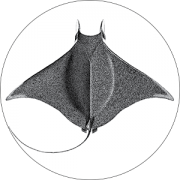Until about 400,000 years ago, Homo sapiens was just one of the many mammals eking a living in the African savannah, busy finding something to eat while trying to avoid being eaten. In a relatively short time, and in ways now reasonably well understood by anthropologists, we have become technologically savvy to the point that we are now capable of dominating and likely destroying the whole planet.
The reason why I am not in awe of this extraordinary development is that humans have been unable to develop, in parallel to their technological prowess, the moral stature necessary to control their brutal strength. This has made of them, essentially, a race of brutes.
Having grown increasingly disconnected from nature generation after generation, humans have lost the sense of where they really belong, and most people today think of nature as an option to be kept outside of their cosy existence. Sheltered inside the protective cocoon of an imaginary reality, humans see nature mostly as something of a nuisance to be protected against.
Alas, the physical world in which we live is still the master, whether we like it or not – earthquakes and hurricanes docent – so this attitude of natural denial may eventually bring about mankind’s demise. Furthermore, it is also the cause of the most pernicious indifference and lack of interest in the natural world and, most damningly, of indifference for the damage we increasingly inflict on such a world.
In this classic cartoon by Charles Saxon, appeared on the New Yorker in March 1983, what is striking is not only the indifference but also the inability to understand what reason there could possibly be for caring about the natural world.





